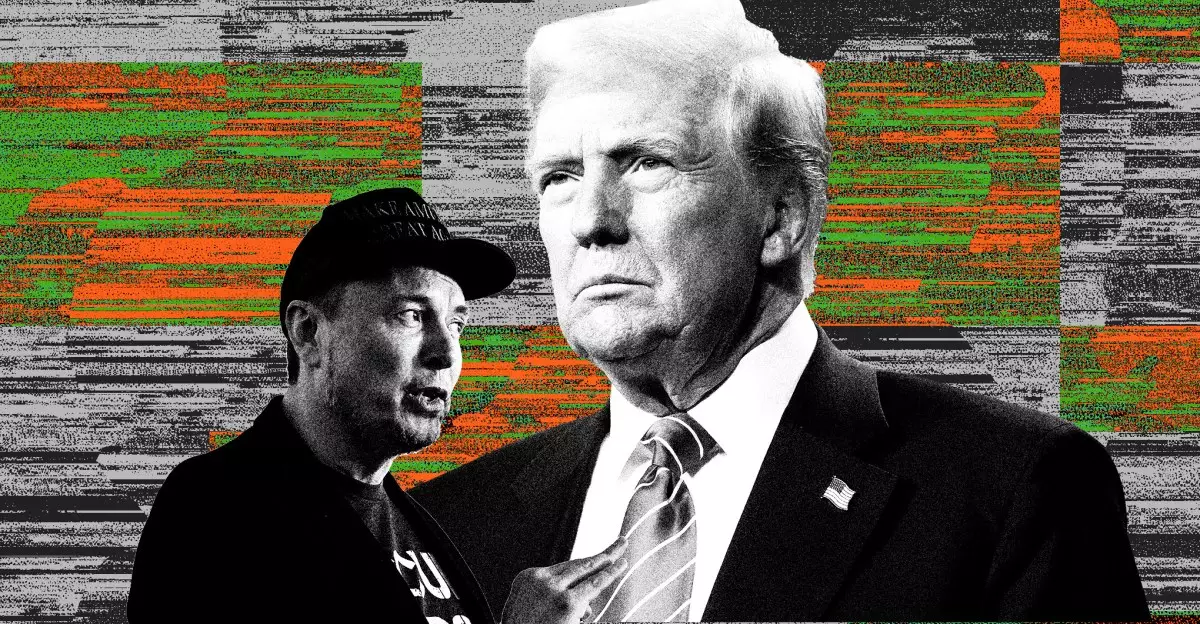The legal battles between former President Donald Trump and major tech platforms have become a focal point for discussions on free speech, censorship, and the ever-growing power of digital media. The recent news that Elon Musk’s platform, X, has settled a lawsuit with Trump for approximately $10 million has raised numerous questions and highlighted the evolving landscape of social media regulation and accountability.
The controversy stems from actions taken by social media companies in the wake of the January 6th, 2021 riots at the U.S. Capitol. Trump’s accounts on platforms like Twitter, Facebook, and Google were suspended due to what these companies deemed as violations of their policies regarding incitement of violence and misinformation. Trump’s subsequent lawsuits aimed not only to contest these suspensions but also to challenge the legal framework that allows these companies to operate with such authority without substantial oversight or accountability.
A court dismissed Trump’s broader lawsuit against Twitter in 2022, stating that the platform did not act as a state entity. This was a pivotal moment, as it reaffirmed the protections provided under Section 230 of the Communications Decency Act, which shields tech companies from liability for users’ content. Nevertheless, the legal tussles continued, with Trump’s case against Google still pending, suggesting that the former president is not backing down from challenging the tech giants in the courtroom.
The $10 million settlement between X and Trump signifies more than just financial compensation; it reflects the implications of power dynamics in the digital age. By agreeing to this settlement, X may have opted for a pragmatic approach, choosing to avoid further legal entanglement that could have adverse effects on its reputation and operational practices. For Trump, the outcome can be seen as a validation of his grievances against tech companies, emboldening his narrative of being a victim of excessive censorship and political bias.
Moreover, the agreement raises critical questions about the precedent it sets for future interactions between public figures and social media platforms. With the increasing influence these platforms hold over political discourse, what responsibility do they have to ensure that their policies are applied fairly and equitably across the board? Questions of whether similar lawsuits could arise from other high-profile individuals now linger in the air.
It’s essential to recognize that the implications of this lawsuit and its settlement extend beyond the courtroom. Musk’s financial investments, allegedly around $250 million, in aiding Trump’s electoral campaign have also drawn attention to the intersection of technology, business, and politics. This connection raises concerns about how closely financial interests may align with political actions and how such alliances could shape public policy in the future.
The settlements that Trump has reached with various tech platforms, including the recent one with Meta for $25 million and ABC’s $15 million defamation settlement, indicate a growing trend. The balance of power is shifting, and the outcomes could redefine the landscape of tech and politics, influencing how accountability and moderation practices are managed by social media platforms moving forward.
The settlement between Trump and X encapsulates a significant moment in the ongoing dialogue about the influence of social media in political realms—one that poses essential questions about power, freedom of expression, and the responsibilities of both digital platforms and public figures. As the situation evolves, the repercussions of these legal confrontations will likely resonate across the tech industry and the political sphere for years to come.


Leave a Reply